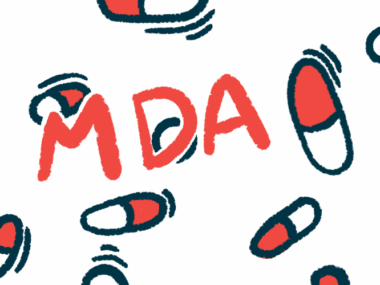Rolling Submission of FA Therapy Omaveloxolone Completed by Reata
Written by |

Reata Pharmaceuticals has completed a rolling submission of a new drug application (NDA) seeking approval in the U.S. for its investigational oral therapy omaveloxolone to treat Friedreich’s ataxia (FA).
In a rolling submission, companies can submit individual sections of review applications to the U.S. Food and Drug Administration (FDA) rather than sending the entire document all at once, which typically occurs. If approved, omaveloxolone would become the first treatment indicated for FA patients.
“This NDA submission marks an important step toward making a treatment available for patients with Friedreich’s ataxia, a serious degenerative neuromuscular disorder with no approved therapies,” Warren Huff, Reata’s CEO, said in a press release. “I want to thank all those who made this possible, especially our patients with Friedreich’s ataxia, their families, and investigators, as well as our employees, for their tenacity and unwavering belief in the omaveloxolone clinical program.”
“We look forward to the next steps on the path to making omaveloxolone available as a first-in-class therapy for Friedreich’s ataxia, pending approval,” Huff said.
Omaveloxolone is a small, orally available molecule designed to activate the protein Nrf2, which is impaired in FA patients. The protein is involved in restoring the function of energy-producing mitochondria, suppressing inflammation, and rebalancing energy production, all of which are impaired due to a deficiency in the frataxin protein, the underlying cause of FA.
The application was based on data from the two-part MOXIe (NCT02255435) Phase 2 clinical trial, which assessed omaveloxolone in 172 FA adolescents and adults, ages 16–40. Part 1 established the recommended daily dose of 150 mg in 69 patients, while Part 2 tested its effectiveness and safety versus a placebo in 103 people for 48 weeks (almost one year).
Data demonstrated omaveloxolone was generally safe and well-tolerated, and significantly improved multiple measures of neurological function and patients’ ability to engage in daily activities. Participants who completed MOXIe were invited to enroll in a long-term, open-label extension study, during which all received omaveloxolone at a dose of 150 mg.
Omaveloxolone was recently granted fast track designation, which allows Reata to communicate with the FDA more frequently about the therapy’s development plan, have access to a rolling submission, and make it potentially eligible for priority review and accelerated approval.
The treatment also received orphan drug designation in the U.S. and Europe, which helps accelerate its therapeutic development and regulatory review by providing support and financial benefits. If approved, the status also ensures exclusive market access for seven years in the U.S. and 10 years in Europe.
The FDA initially stated that MOXIe’s results were insufficient to merit regulatory approval. But a petition by the Friedreich’s Ataxia Research Alliance that was signed by more than 74,000 people worldwide prompted Reata to submit an approval application for omaveloxolone and the agency to reconsider its decision based on existing evidence.
After a meeting with the FDA, the company announced it would apply for standard approval, requiring no additional clinical trial data. Because of the seriousness of FA and the lack of treatment, the FDA said Reata may submit additional clinical and nonclinical results even after the application has been officially tendered.






